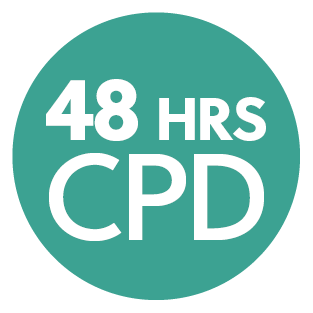Certificate in Building Control

The CABE Certificate in Building Control has been the foundation of many professional careers and is essential learning for those working in Building Control and those designing to meet the Building Regulations.
Course Overview

The CABE Certificate in Building Control will be of use to professionals working in many areas of the built environment. It has been the foundation of many professional careers and is essential learning for those working in Building Control and those
designing to meet the Building Regulations.
The course includes real-life examples, case studies, theoretical calculations and considerations for design and plan assessment as well as features to consider during site inspection.
The full course is made up of 8 days spread over two weeks, 4 days in week one and 4 days in week two. The whole of week one and the first 3 days of week two will be carried out face-to-face at our HQ in Northampton. The final day is an assessment day
and will be carried out online.
To learn more about the course content, please click the button below to download the Certificate in Building Control handbook.
Certificate in Building Control Handbook

Course Contents
Legislation and Building Control
This day will explore the Building Regulations, information required during the design and construction process, and what happens when works don’t proceed to plan. You will gain an understanding of enforcement options and processes and possible consequences
of non-compliance. Additionally you will gain an understanding of the legislation and the obligations placed on organisations and individuals and will consider associated issues such as dangerous structures, demolitions and ancillary legislation.
Parts A, C, D & H
This day will look at the minimum standards set by parts A, C, D & H of the Building Regulations in relation to structural safety, preparation and moisture resistance, toxic substances in building materials, provides guidance on drainage and waste
disposal systems. These documents are integral to ensuring that UK construction projects meet safety, health, and environmental standards.
Parts K, M & E
This day will look at the minimum standards set by Parts K and M of the Building Regulations in relation to access, circulation and safety. You will also gain an understanding of the review of the minimum standards set by part E of the Building Regulations
in relation to sound insulation. This course will also examine in detail the guidance given in the Approved Documents and possible alternatives given in British Standards and other guides.
Parts P, Q, R, J & G
In this day we will focus on Parts P, Q, R, J & G of the Building Regulations in relation to electrical safety, security, infrastructure for electronic communications within dwellings, sanitation, hot water safety, water efficiency, and the management
of combustion appliances and fuel storage systems.
Part B (two days)
This day will focus on Part B of the Building Regulations, looking at how buildings can be made safer in case of fire. You'll learn why it's so important to protect structures from fires and how these rules apply to different types of buildings. We'll
also cover how to check drawings and installations to make sure they meet Part B and other important standards.
Parts F, L, O & S
In this day we will focus on Parts, F, L, O & S of the Building Regulations in relation to the ventilation in buildings, energy conservation, and the potential for residential building overheating, as well as strategies to mitigate overheating in
such buildings, it is essential to also delve into the significance of the installation and location of electric vehicle (EV) charging points.
Assessment
To add value to the course, there will be a checking of learning exercise at the end of each day.
At the end of Week Two there will also be an end of course assessment on the final day where candidates will be tested on what they have learnt in Week One and Week Two.
The assessment day is designed to allow you the opportunity to demonstrate
that you have met the learning outcomes, which can be found at the beginning of each day's presentation.
There are three opportunities to do this, which are all based on the six days of learning you have completed.
The assessment is made up of three sections:
- Online multiple-choice test consisting of 40 questions to be answered within 45 minutes of commencing. You will see your mark when you have finished the test.
- Case study exercises with questions based on provided scenarios
- Plan check exercises where you will be asked questions about the plans you will be given.
For this final day, delegates will not need to attend the course in person as the assessments will be carried out online.
Delegates will receive a Microsoft Teams invitation for this day.
Successful candidates will be awarded a certificate.
Who's it for?
- New entrants to Building Control
- Building Control Professionals

Development Outcomes
- Improved understanding of legislation
- The ability to be able to interpret regulatory requirements and guidance
- An awareness of alternative solutions to compliance
- An appreciation of the practical solutions to common problems
Amazingly Competent and knowledgeable trainers, providing a wealth of knowledge
gained through years of practical experience. D Ryan, RPP Management Limited
Course Trainers

Michael Morgan
Assent Building Control
Michael is a Chartered Surveyor, Chartered Building Engineer and Associate member of the Institution of Fire Engineers. Michael has worked in the construction industry for over 18 years where his experience has been developed in Building Control and other
related disciplines, he delivers training on behalf of CABE, as well as working as part of the RICS editorial board for Built Environment publications.

Kevin Dawson
Public Safety Advisor
Kevin has experience working as a Building Officer, progressing to become a fully qualified surveyor as well as having worked alongside local authorities as a Building Control Surveyor. He has been a Director of the
Building Control Alliance, and
in 2018 set up a Public Safety Consultancy.

Emily Bowman
Building Control Team Leader for East Suffolk Council
Emily has over 17 years’ experience in construction across high volume house building, residential valuation and building control within both the private sector and Local authority. Emily now works as Building Control manager for East Suffolk Council the largest district councils by geography. Overseeing a wide range of projects across both residential and commercial up and down the coast. Emily enjoys training new starters in Building Control and serving on the interview panels for the End Point Assessment with the Building Control Degree apprenticeships.

Steve Willett
Head of Specialist Training
Steve has over 15 years of Fire Safety experience, progressing to become the Head of Specialist Training at Part B in 2021.
His previous roles include Fire Safety Trainer, Fire Safety Deputy Team Leader and Senior Fire Consultant for BB7.

Jon Cumberlidge
Director Principal Building Consultant for C3 Design Approvals
Jon has over two decades of experience in the construction industry and is a director and co-founder of an Approved Inspector and a separate Fire Consultancy business. He is a Chartered Building Engineer, Chartered Builder, Member of the Institution of
Fire Engineers, the Institute of Fire Safety Mangers, and the Institution of Royal Engineers.

Steve Glass
Associate at Part B
Steve is a seasoned professional with 28 years at Kent Fire & Rescue Service, excelling in operational, training, and fire safety roles. He's a Chartered Member of IOSH, a Member of the Institute of Fire Engineers, and holds numerous safety qualifications
including NEBOSH and NVQ Level 5 Diploma in Occupational Health & Safety. He is also s registered CITB/NEBOSH tutor.

Jaspal Virdee-Dhanjal
With over 33 years of building control experience in both the public and private sectors, I have developed my expertise in residential and commercial projects, notably as a Team Leader at BAA for Heathrow's Terminals 1-4 and as a Director
at AIS. I am actively involved with RICS, having served in leadership roles and as a contributor to setting professional standards and competencies.
Price
Week One


WeekTwo


Book Your Place for Week One
Book Your Place for Week Two
















